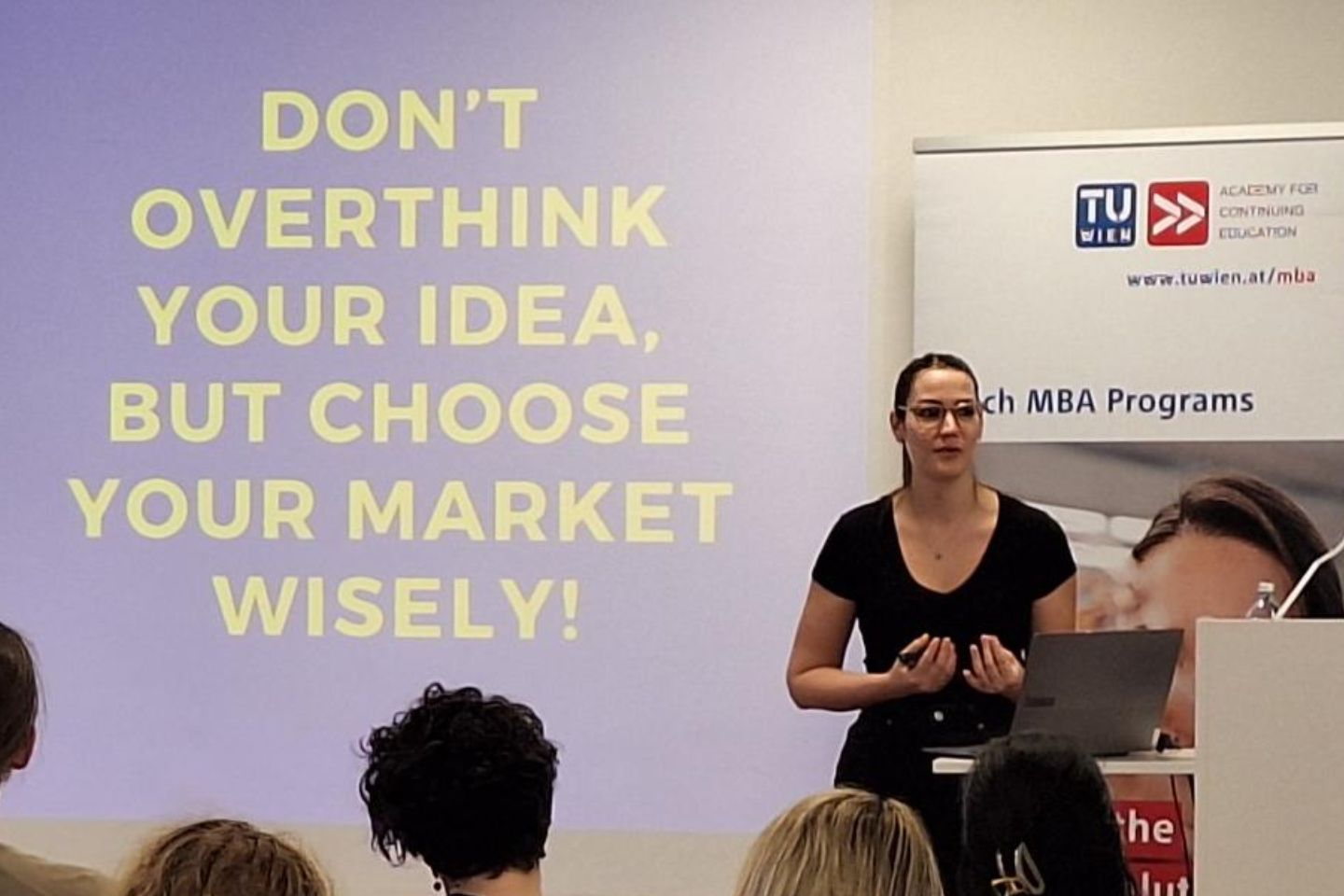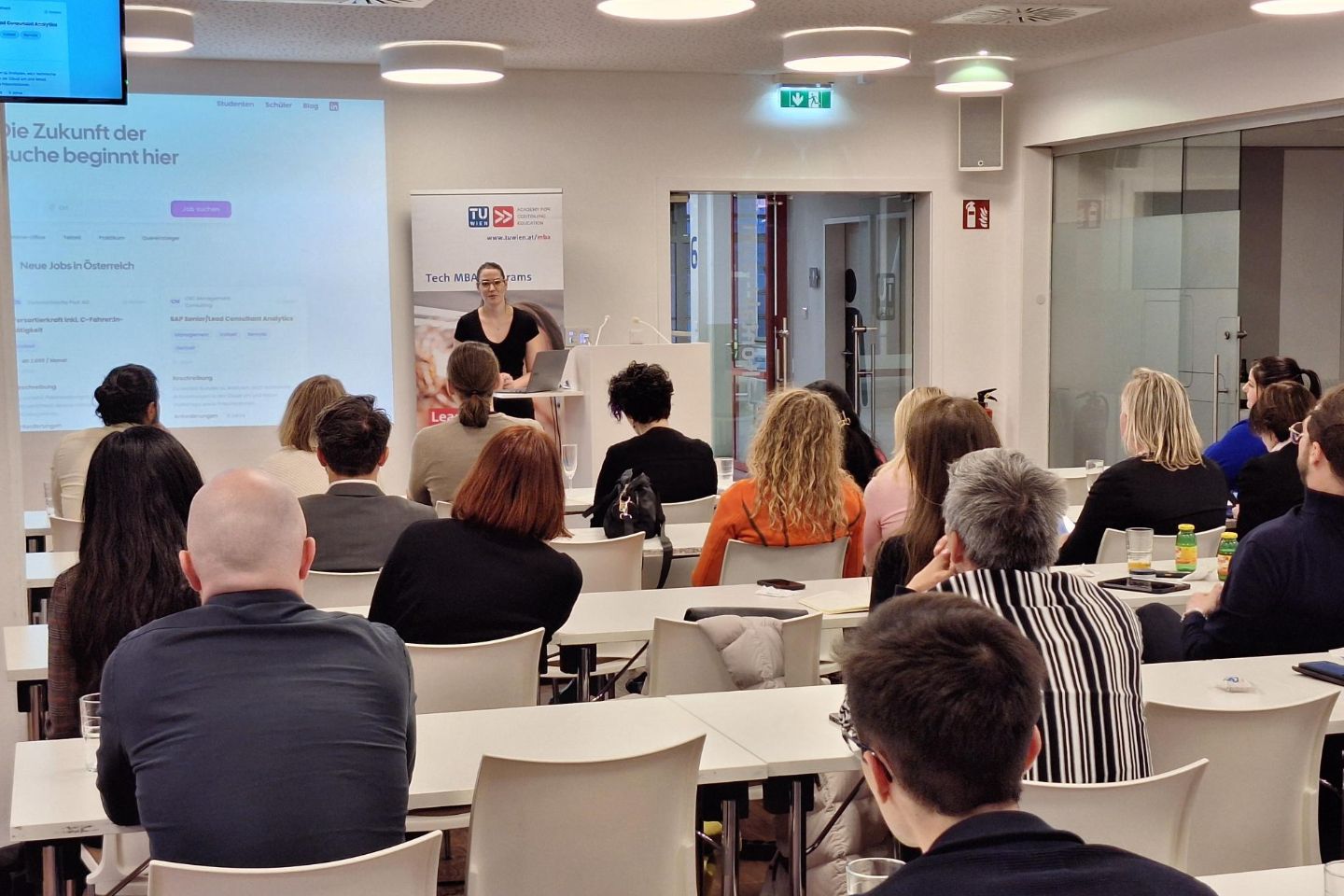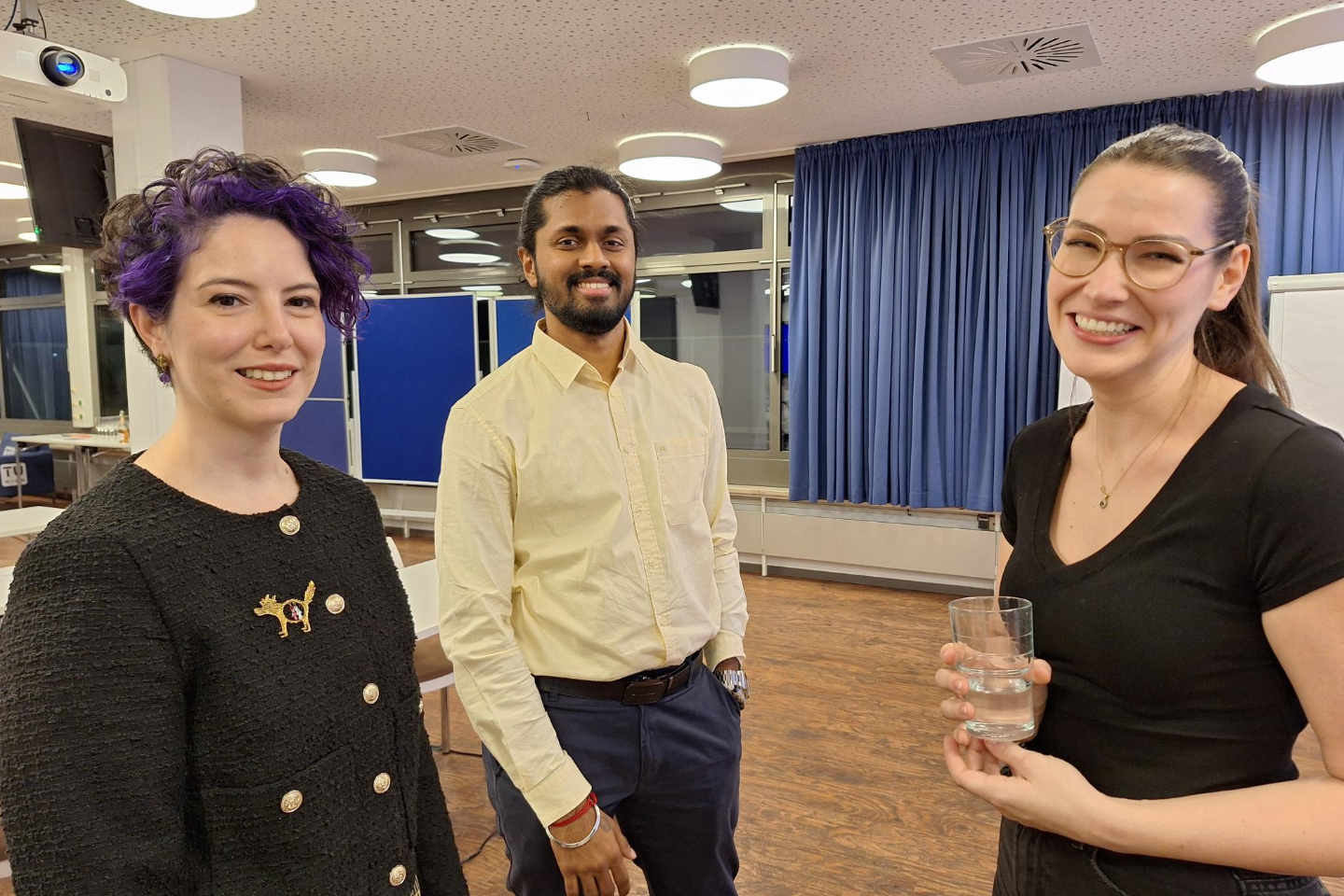Simona is the former CEO of i5growth, the founder of AI-powered job platform Nejo, opens an external URL in a new window, and someone who truly knows the startup world inside out. In her talk, she shared honest and authentic insights into how artificial intelligence is rewriting the rules of entrepreneurship – and why now might be the perfect time to start your own company.
All news at TU Wien
A Startup Revolution: “Tomorrow’s Leaders – How AI is Changing the Rules of Entrepreneurship”
On April 10, 2025, founders, tech enthusiasts, and curious guests gathered on the TU Wien campus to learn from someone with deep insider experience in the startup world: Simona Hübl.
Simona Hübl: From Investor to Founder

Simona has seen both sides: the VC world and the daily grind of founding a company. As a former investor, she supported numerous tech startups in scaling internationally. Today, she runs Nejo, an AI-based company that is rethinking access to jobs. She knows exactly what it takes to build a startup in a fast-changing world.
“The next billion-dollar company could be built by just one person,” she quoted Sam Altman. While technically possible, she admitted it’s not the ideal setup for her personally:
“I need people around me. Team interaction, emotional balance, and mutual motivation are super important.”
The Rules are Changing - Radically
“AI changes everything.” Simona repeated this sentence several times – and for good reason. With just four developers, she built a product in four months that outshone established competitors with decades of experience. This was only possible through the consistent use of AI tools in areas like coding, testing, and prototyping.
The challenge: using AI as a co-developer requires a deep understanding of both its capabilities and its limits. Prompt engineering is becoming just as essential as traditional software development. Her CTO now spends 30% of his time crafting AI prompts rather than conventional coding – a true paradigm shift.
AI massively lowers the barriers to entry – tasks that used to take weeks can now be done in days. But this also means the pressure to stand out is growing. That’s why Simona emphasizes that UX is becoming a commodity. The real competitive edges now lie in marketing, sales, and branding. Future founders need to not just be good at coding, but above all, at selling.
Non-Tech Founders on the Rise
In the past, programs like Y Combinator mostly accepted teams with strong tech skills. That’s changing fast: most code in startups is now AI-generated. Simona sees this as an opportunity for those who were never “techies” in the traditional sense: “The future won’t belong to those with technical skills alone, but to those who can identify problems early and develop smart solutions.”
Investors are scrutinizing startups more closely than ever. Where once a well-packaged vision was enough, startups today need real prototypes and actual user numbers to secure funding. Simona welcomes this shift:
“The days of getting millions just for an idea are over – and that’s totally okay.”
Her recommendation: bootstrap for as long as possible. Build with your own resources. It leads to more focus and entrepreneurial discipline.
Founding is not a solo project – and emotional intelligence is not a luxury

The audience used the opportunity to aks their questions to an experienced founder.
When asked whether she could have started alone, Simona responded openly: “Emotionally, I wouldn’t have made it.” In her experience, most startups fail due to internal team conflicts. Her tip: make topics like values, expectations, finances, and work-life balance a conversation early on.
One hands-on piece of advice from Simona’s own experience: set up a clear vesting agreement – even if you’re founding with friends. Not out of distrust, but to protect your friendships. Even the closest friendships can crack under startup pressure.
The "right" idea matters less than you think
Many successful startups like YouTube, Netflix, or Shopify started out with entirely different ideas. Simona’s takeaway: ideas can and should evolve. What really matters is the problem you’re solving and the market you’re addressing – not your original idea. In addition to tools, strategies, and “hacks,” Simona also spoke candidly about the mental toll of working with AI: “Sometimes I can’t remember if I did something today or days ago.”
AI helps her work faster, but the tasks left over are often the most complex. Her lesson: know yourself well, plan breaks intentionally, and accept that you can’t do everything. Most importantly, celebrate small wins – because in startup life, especially early on, no one else is going to pat you on the back.
In closing, Simona shared a bit of personality advice: “As a founder, you need to be both humble and a little arrogantly confident.” You have to stay open to feedback and criticism, but also persist when everyone says your idea won’t work. Airbnb was rejected by investors more than 20 times – today, it’s worth billions.
Conclusion: The Future Belongs to Those who Shape it

After the talk, there was a relaxed opportunity to network and continue the conversation.
In just 90 minutes, Simona shared not only valuable knowledge, but also deep encouragement. She spoke honestly about the highs and lows of being a founder. AI has opened new doors – but it’s still up to you to walk through them. So if you're considering starting your own business, just do it. Maybe now is the moment to turn your “someday” into your personal “today.”
Ready to take your entrepreneurial mindset to the next level?
Our Executive MBA in Innovation Management & Entrepreneurship, opens an external URL in a new window equips experienced professionals with the tools to strategically develop and successfully implement innovative business ideas.